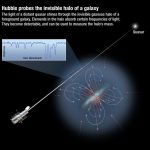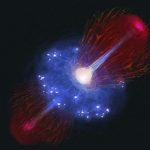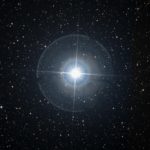The lunar surface remelted, obscuring an easy answer to its true age
How old is the Moon?
Astronaut-gathered samples from the lunar surface put its age at about 4.35 billion years. However, other evidence suggests it’s much...
You’re made of carbon that took a journey into intergalactic space
I’ve used this fact a gazillion times; every atom in your body has been through the core of a star!
The carbon in our bones...
Latest discoveries about exoplanets
For centuries, humanity has wondered whether we are alone in the universe. The search for life beyond Earth has taken a giant leap forward...
An early supermassive black hole took a little break between feasts
In the last couple of decades, it’s become increasingly clear that massive galaxies like our own Milky Way host supermassive black holes (SMBHs) in...
How to get solar power from space
The idea of collecting solar energy in space and beaming it down to Earth sounds like something out of science fiction, but recent advances...
Humans will soon be able to mine on the moon—but should we
By the end of this decade, nations and private companies may well be mining the surface of the moon.
But as space becomes accessible to...
Scientists create ultra-sensitive infrared detector for starlight detection
A research team led by Professor Zhang Zhiyong at Peking University has developed groundbreaking technology that allows for the detection of extremely faint starlight...
Scientists discover fast-spinning white dwarf in unusual binary system
Astronomers have uncovered fascinating details about a rare binary star system called HD 49798/RX J0648.0–4418, located 1,700 light-years away in the southern sky.
Recent research...
Latest discoveries in deep space exploration
The universe is vast and full of mysteries, and recent advancements in astronomy are helping us uncover secrets about deep space like never before.
Thanks...
Scientists discover carbon’s cosmic journey through galaxies
Carbon, the essential building block of life, has a remarkable origin story.
Nearly all elements beyond hydrogen and helium, including carbon, oxygen, and iron, are...










